5 Best Beginner Keyboard Pianos🎹 (That I’ve Actually Played)
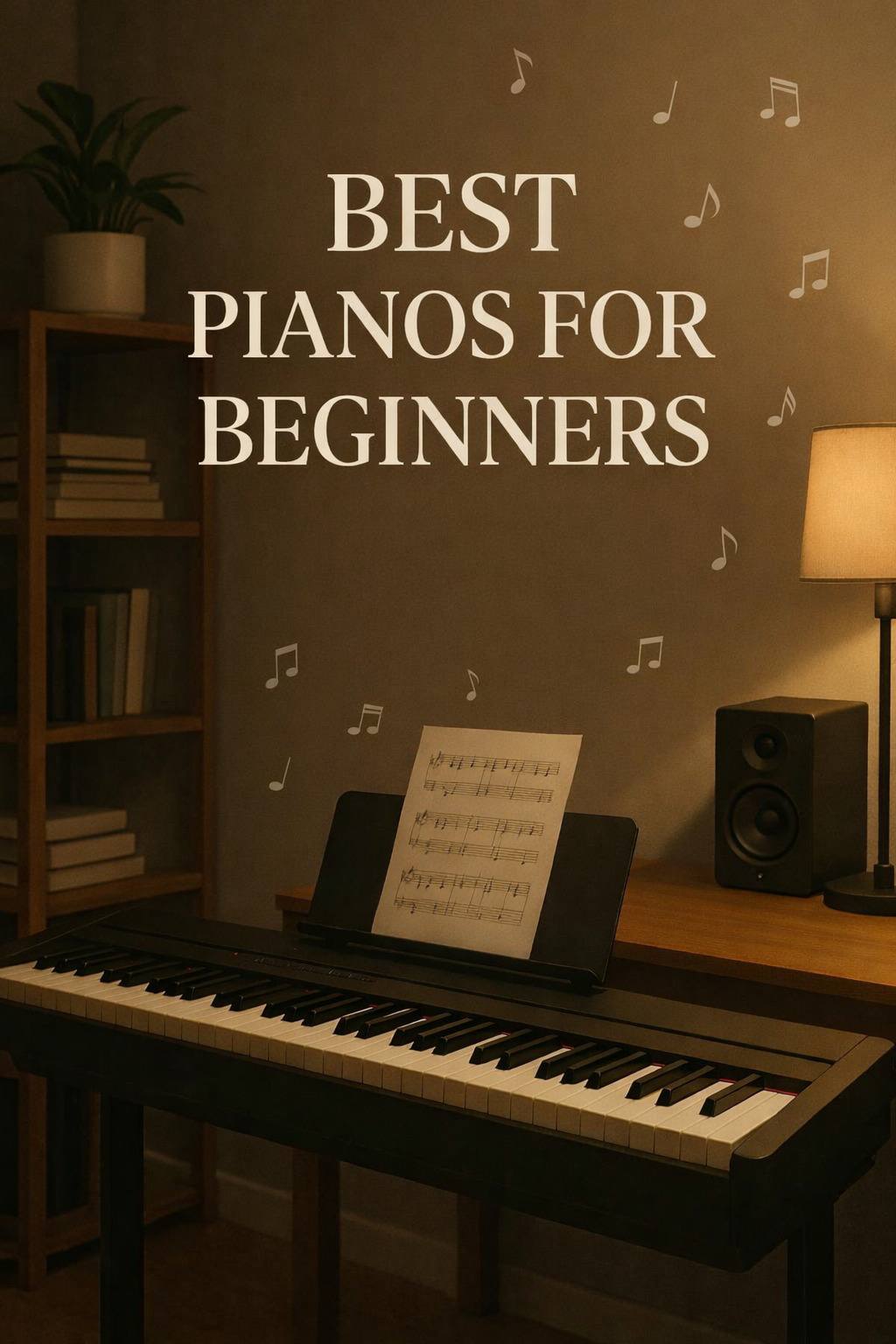
So you wanna learn piano. Awesome decision.
But now you're staring at a million options online, Yamaha this, Roland that, and wondering: Which one won't suck? Or worse, which one will make me quit in a month because it feels like tapping on cardboard?
I've been there. I've tested tons of beginner-friendly digital pianos over the years (and yeah, I've got opinions). Whether you're a total newbie or just getting back into it, here's a deep dive into the best beginner pianos in 2026 that are actually fun to play, and won't kill your budget.
1. Yamaha P-145
💬 *"Simple. Reliable. Kinda like the Honda Civic of beginner pianos."

Why I Recommend It:
This thing just feels right. Weighted keys that give you feedback without being stiff, clean piano tone, and a layout that doesn’t try to impress you with a billion flashing buttons. It's like Yamaha knew exactly what you needed and nothing more.
What It Has:
- 88 full-sized weighted keys (GHC – Graded Hammer Compact action)
- Built-in metronome
- USB to Host (for connecting to apps)
- Basic but solid piano voices
Best For: Anyone who wants a solid, no-fuss practice piano that feels close to an acoustic.
Downsides? The speakers are just okay. But if you're practicing with headphones (which you probably will), it's not a big deal.
My Take: If you want to learn piano and you're not interested in shiny gimmicks, this is your jam. It's durable, portable, and feels like a real instrument.
2. Alesis Recital Pro
💬 *"The best cheap digital piano that doesn’t feel like a toy."
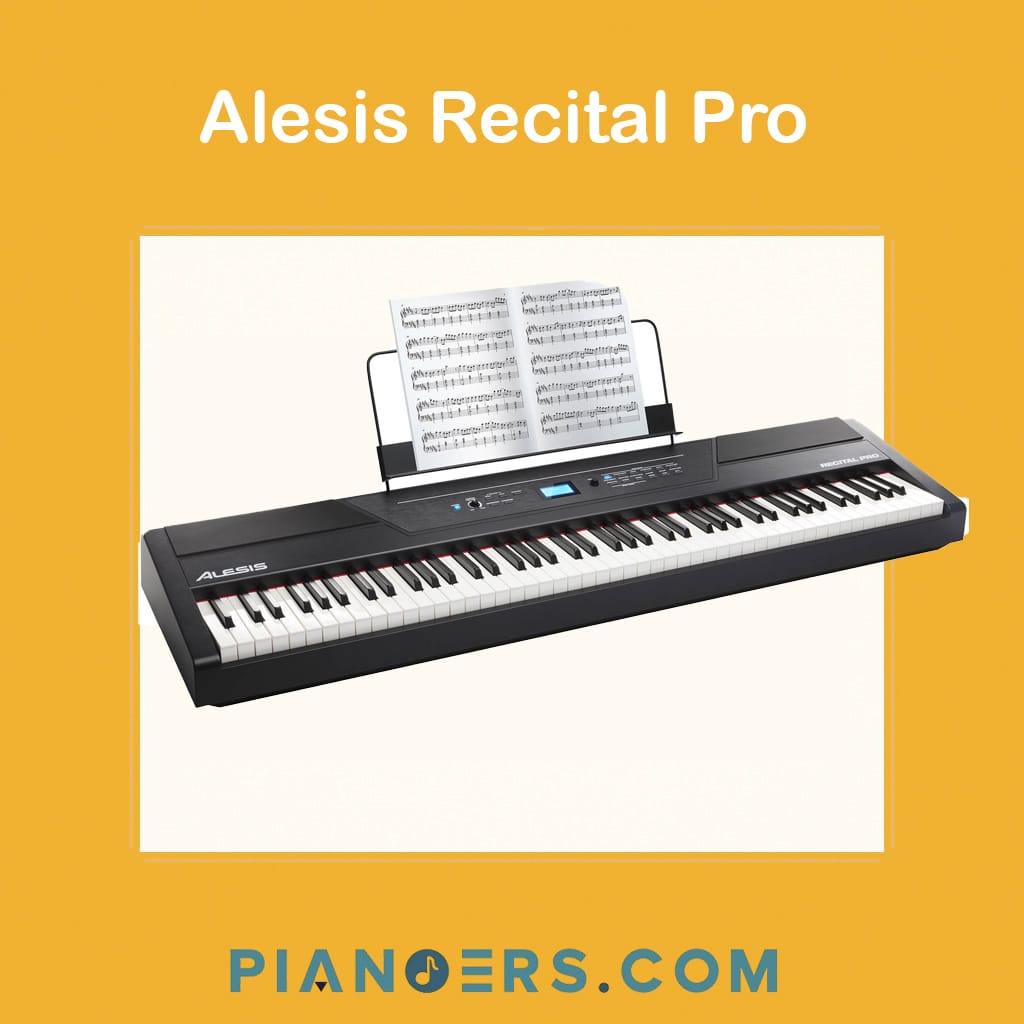
Why I Recommend It:
I was shocked how playable this thing is for the price. The keys are hammer-action (not just semi-weighted) and it comes loaded with features that make it perfect for total beginners.
What It Has:
- 88 full-sized hammer-action keys
- 12 voices (including organ, synth, etc.)
- Lesson mode, split mode, and layer mode
- 128-note polyphony
- Built-in speakers and headphone output
- USB-MIDI for app connectivity
Best For: Absolute beginners on a tight budget, parents buying a first piano for their kids, or someone testing the waters before committing.
Downsides? Key feel isn’t ideal for advanced players, and the sound is okay but not "wow." Still, for under $400? This is crazy value.
My Take: Not perfect, but 100% playable and surprisingly capable. An awesome entry point if you’re not ready to invest in a higher-end model yet.
3. Roland FP-30X
💬 *"Fancy, but not flashy. A future-proof pick if you're in it for the long haul."
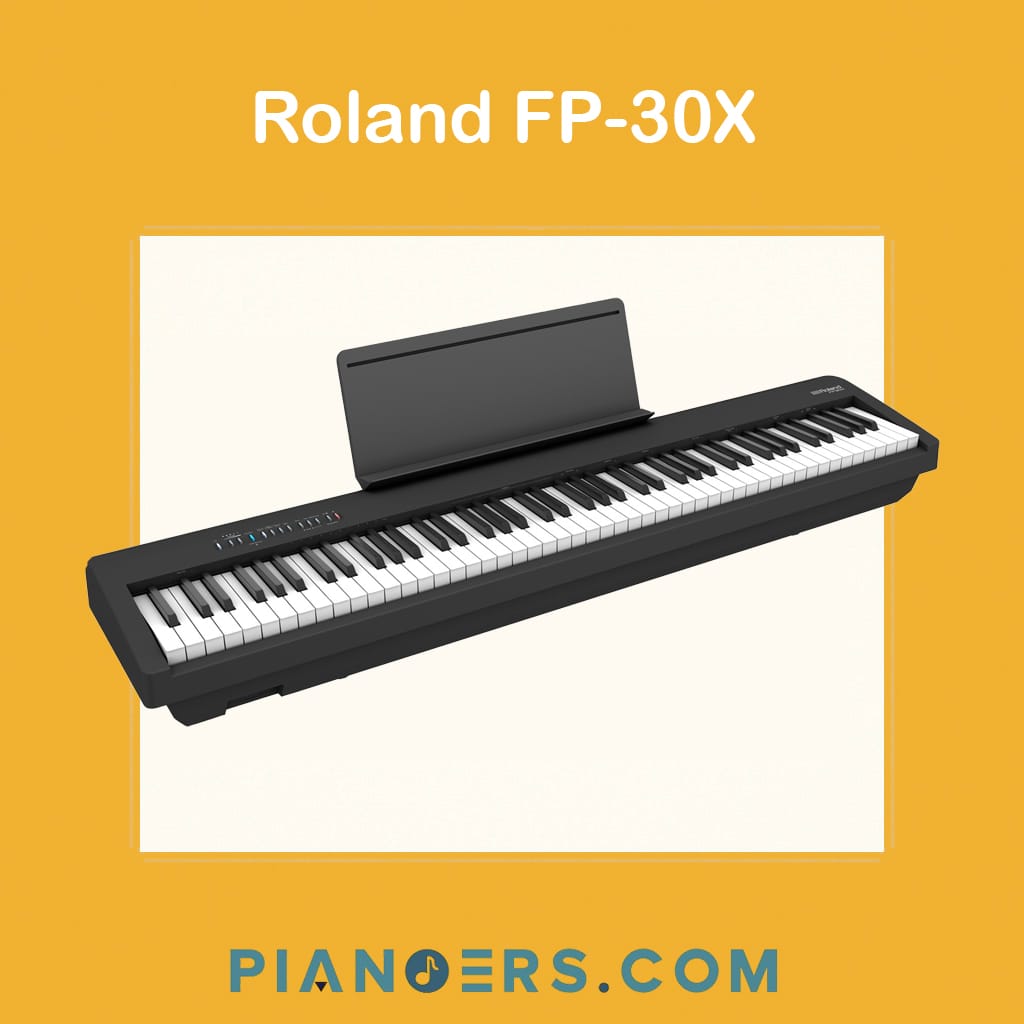
Why I Recommend It:
This one feels premium. The key action is miles ahead of cheaper models, and the SuperNATURAL sound engine is rich and dynamic. You also get Bluetooth MIDI and audio, so you can wirelessly play along with YouTube, apps, or backing tracks. Huge plus.
What It Has:
- 88 keys with PHA-4 Standard hammer action, including escapement & Ivory Feel keytops
- SuperNATURAL sound engine
- Bluetooth audio & MIDI built-in
- 3D headphone ambience
- 256-note polyphony
- Built-in recorder and metronome
Best For: Intermediate beginners, adult learners, or tech-savvy players who want to grow into their instrument.
Downsides? Price is creeping toward $700–$800. Also, it’s kinda heavy.
My Take: If you’re planning to stick with piano, this is worth the stretch. It feels amazing and you won’t need to upgrade for years.
4. Casio Privia PX-S1100
💬 *"Sleek and slim, but still plays like a beast."
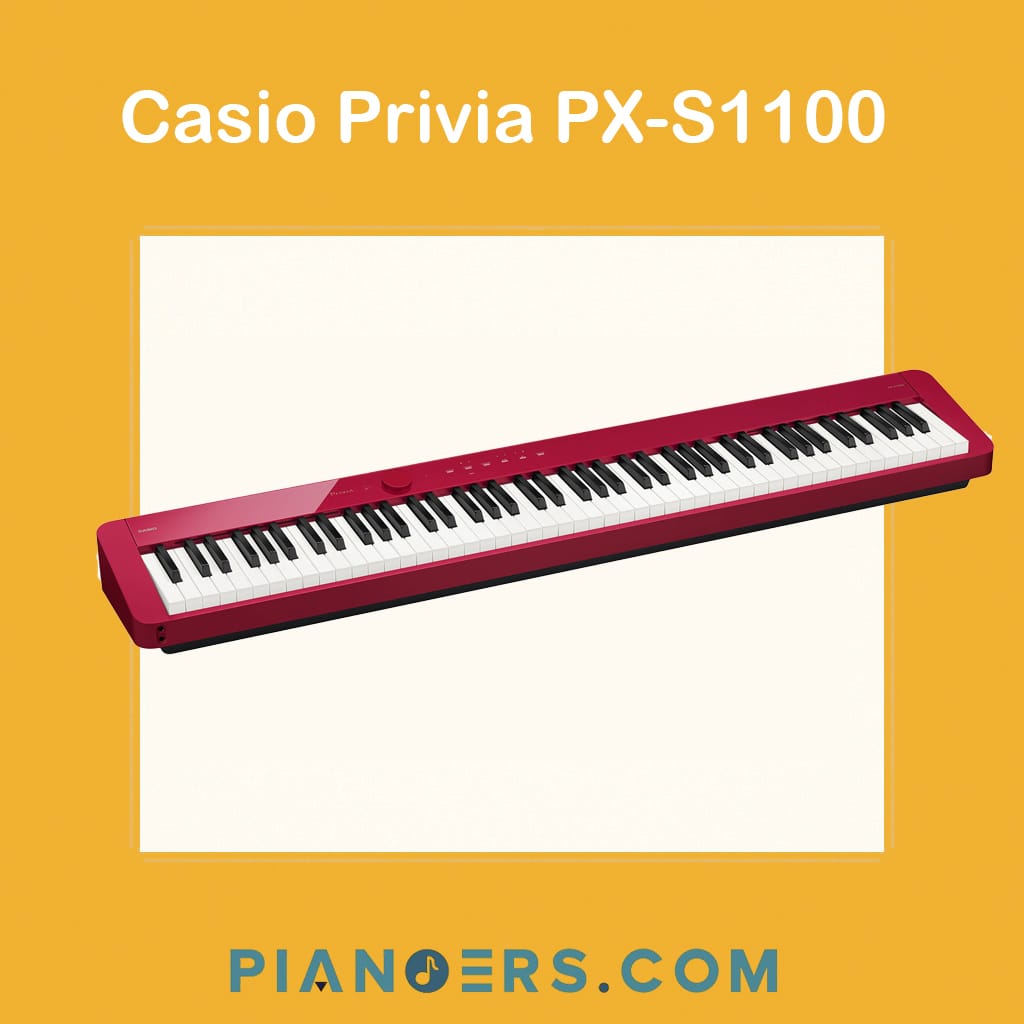
Why I Recommend It:
Casio knocked it out of the park here. This thing looks like it belongs in a design museum, but plays like a serious instrument. It's super slim (like, freakishly thin), yet the keys still have real hammer action. The piano tone is expressive, and it has Bluetooth audio for playing along with your favorite songs.
What It Has:
- 88 fully-weighted keys (Smart Scaled Hammer Action)
- Bluetooth audio
- Great piano voices and reverb settings
- Stylish design, available in black, white, or red
- USB and 1/4" line outputs
Best For: People with limited space, style-conscious players, and anyone who wants something portable and beautiful.
Downsides? Touch-sensitive controls instead of buttons take some getting used to.
My Take: If looks matter and you don’t want to sacrifice feel or sound, this is a fantastic choice. Perfect for apartment living.
5. Korg B2
💬 *"Underrated. Super beginner-friendly and sounds better than expected."
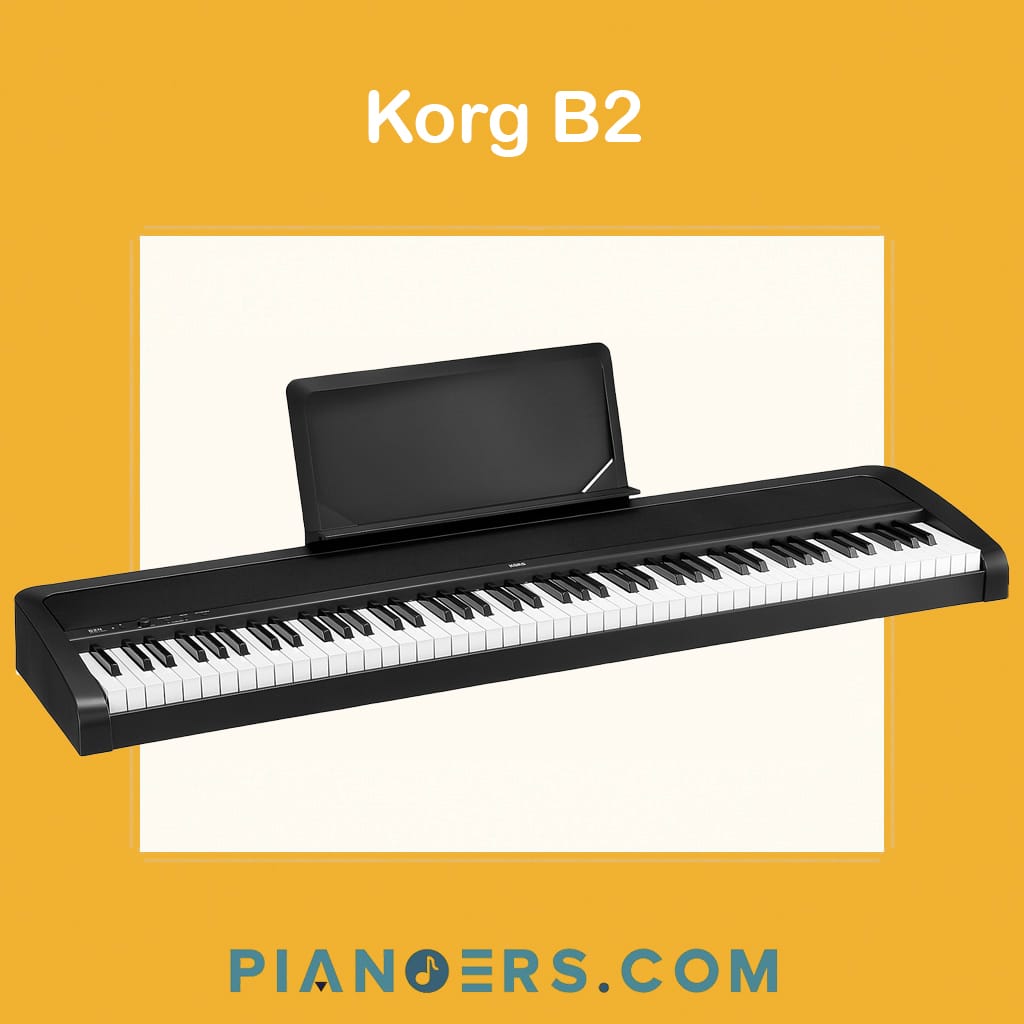
Why I Recommend It:
Korg doesn’t get as much love in the beginner space, but the B2 is a dark horse. It’s simple, affordable, and sounds surprisingly warm. Plus, it has a decent keybed for the price and USB connectivity to hook up learning apps like Simply Piano or Flowkey.
What It Has:
- 88 keys with NH (Natural Weighted Hammer) action
- Basic built-in sounds (piano, organ, etc.)
- USB-MIDI support
- Software bundle for learning included (in many kits)
Best For: Beginners who want something basic and reliable that still feels musical.
Downsides? No Bluetooth, and it doesn’t have as many features as some others.
My Take: Great for getting started. If you're not chasing tech features and just want to play, this checks all the right boxes.
🧠 Bonus: Don’t Ignore These Tips
1. Always go for 88 keys: If you get a 61-key keyboard, you’ll hit a wall fast. Full-size keys help you build real technique.
2. Weighted keys are non-negotiable: Semi-weighted is okay at first, but if you can swing it, go fully weighted. It trains your fingers properly and makes switching to an acoustic piano seamless.
3. Headphone jack = peace: Seriously. Practice without bugging the whole house.
4. Bluetooth MIDI is a game-changer: Lets you wirelessly connect to apps like Simply Piano, Flowkey, GarageBand, etc.
5. Buy a stand and pedal: A proper stand (not an X-stand) and a sustain pedal will make your setup way more comfortable and realistic.
Still Not Sure? Here's My TL;DR:
- Best All-Around: Yamaha P-145
- Best on a Budget: Alesis Recital Pro
- Best for Long-Term Growth: Roland FP-30X
- Best for Style + Portability: Casio PX-S1100
- Best Simplicity Pick: Korg B2
If you're still stuck, here's my advice: Don't overthink it. Pick one in your budget and just start playing. Just AVOID the cheap Chinese pianos, they suck!
The real magic is in practice, not gear.
Let me know if you want help picking one based on your space, goals, or learning style. Happy to help. Just promise me one thing:
Stick with it.
Because piano is one of the most rewarding things you’ll ever learn. And if you're just getting started check out our article on the best online piano lessons.
We are a participant in the Amazon Services LLC Associates Program, an affiliate advertising program designed to provide a means for us to earn fees by linking to Amazon.com and affiliated sites.

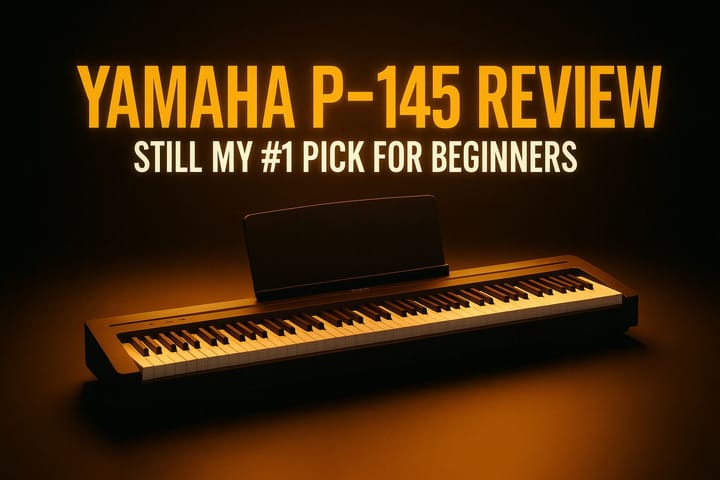
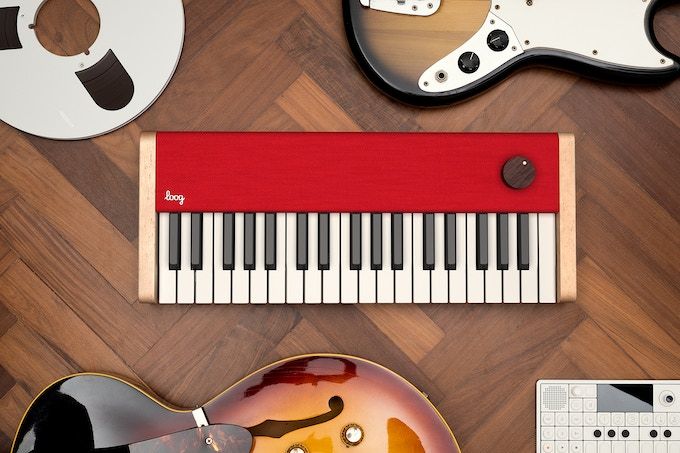
Comments ()